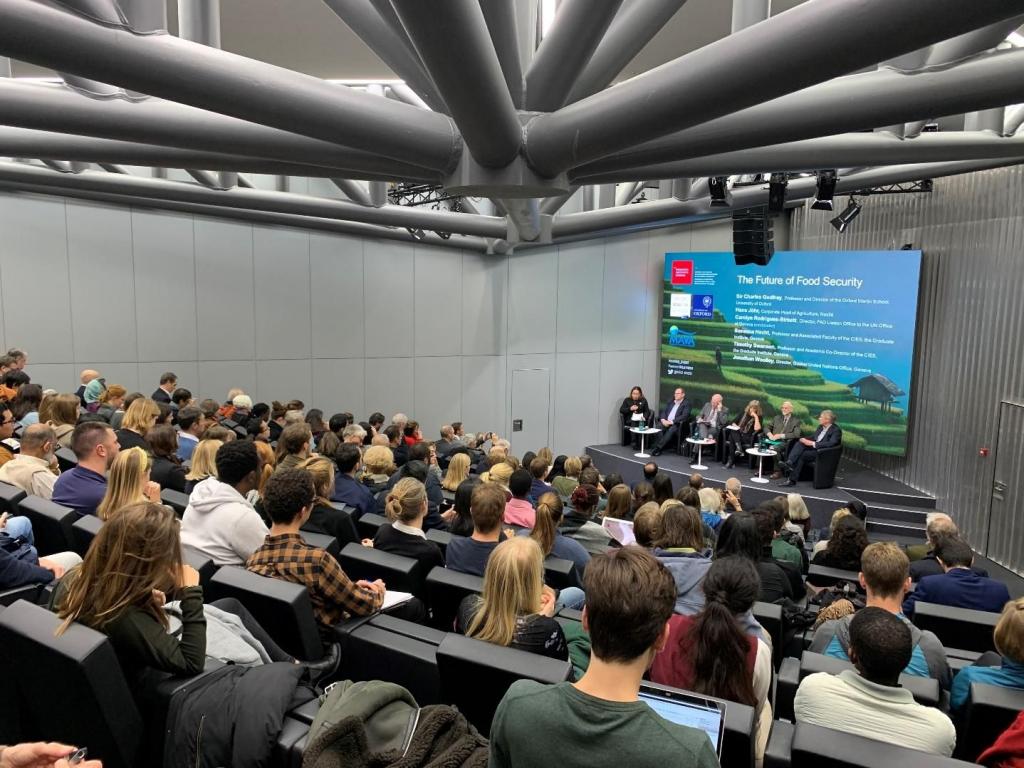Professor Susanna Hecht (Professor of International History and Associate Faculty at the CIES) and Professor Tim Swanson (Professor of International Economics and Academic Co-Director at the CIES) started the discussion by highlighting how the current food system affects ecosystems and biodiversity. Addressing the challenge of food security will necessarily imply changing how we produce and consume the world’s resources.
Jonathan Wooley, Director, Quaker United Nations Office, underlined the need to drastically reduce meat consumption, without excluding poorer populations that depend on meat production and consumption for their subsistence.
Sir Charles Godfray, Professor of Population Biology and Director of the Oxford Martin School (University of Oxford), emphasised the need to reduce food waste and to foster technological innovation in agriculture. He gave the example of “precision agriculture” - which can significantly reduce the use of fertilisers by precisely targeting specific crop areas.
Professor Susanna Hecht cited the many benefits of agroforestry, where crops can grow on various kinds of forest platforms. She also emphasised how we will need to diversify our diets to include more forest-grown crops, such as the “super-food” acai or nuts. Currently, our food systems tend to rely on a very limited set of crops, mainly wheat, rice, maize and soja, which are very land-consuming.
Turning to inefficiencies into our food systems, Hans Jöhr, Corporate Head of Agriculture at Nestlé, emphasised that investing in training local farmers will improve the efficiency of food production and will make it more attractive to young people to become farmers.
Jonathan Wooley added that local farmers have a lot of indigenous knowledge that we can also learn from. Often, small-scale farmers have a better understanding of their environment and can develop better techniques that are more adapted to climate variability.
Professor Tim Swanson concluded that investing in human capital in developing regions needs to be a crucial part of the solution to food security problems. This will imply further investments in institutions of higher learning in the developing world, such as the CIGR, the International Commission of Agricultural and Biosystems Engineering.
Concluding remarks were made on how each sector can contribute to overcoming the challenge of food security in the future. From a civil society point of view, it is essential to involve local communities and to understand their needs to address food security as well as the role of social movements in advancing current issues. In the field of academia, further research has to be addressed from a multidisciplinary perspective to overcome the challenges of food security.
Finally, the private sector has to work together with other sectors to address changes. Overall, this panel discussion contributed to a better understanding of the challenges of food security in the 21st century.
If you have missed the event or would like to watch it again, follow this link.
Read more - Food Security and Land Use in the 21st Century: The Return of Malthus?, by Tim Swanson, Global Challenges


